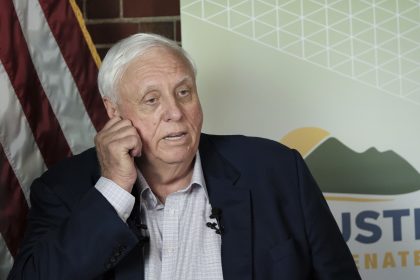Debunking Five Myths About ESG: Beyond Compliance and Reporting
COMMENTARY

As political attacks on environmental, social and governance initiatives increase, misconceptions about these important corporate practices continue to abound.
A vocal minority of political actors continue to advance an agenda intended to discredit and malign ESG and related initiatives. Companies may be communicating about the work differently, but ESG practices are not going away because the work has never been more important.
The recently announced U.S. Securities and Exchange climate reporting requirements, and others worldwide, increase pressure on corporations to prioritize sustainability, even as legal challenges to their enactment play out. Deriving business value from these efforts is critical, and common myths about ESG may get in the way, but industry professionals and companies are holding steady and continue to press on with advancing this important work.
Below are five common myths that are often repeated about ESG.
Myth 1: ESG Efforts Should Focus on Compliance and Reporting.
Reality: Compliance and reporting are essential, and with the SEC’s newly announced regulation, they are now the law of the land. However, reducing ESG to a compliance function misses the valuable opportunity that ESG provides to advance innovation and drive strategy.
Embracing innovative and equitable products and programs increases competitiveness, satisfies stakeholders and contributes to a stronger society and communities, while “check-the-box” compliance limits progress.
The bottom line is that ESG is good for business. According to a KPMG report, 70% of U.S. CEOs said their ESG programs improved their financial performance. To create economic impact, companies must embrace strategic ESG initiatives by funding, prioritizing and focusing the work.
Myth 2: ESG Is Solely About the Environment.
Reality: Environmental sustainability is an essential part of ESG — and the SEC regulations specifically address climate impact — but ESG encompasses a much broader scope that stakeholders care about equally.
Issues including diversity, equity and inclusion, human rights, employee and stakeholder engagement, ethical and transparent governance, fair wages and community well-being are all critical components of strong ESG programs.
Investors, employees and customers make choices about companies on various issues that go well beyond the environment. For ESG initiatives to provide significant business returns, companies must look beyond a single issue and embrace a comprehensive approach.
Myth 3: ESG Is a Standalone Function Disconnected From the Business.
Reality: ESG can’t achieve its value potential when it sits on the sidelines as an “add-on” rather than integrating into business goals and functions.
When companies define issues that are material to their success as the basis for ESG goals, the lines of business and functions are best suited to develop and implement strategic solutions to achieve intended outcomes.
Whether the material issue is minimizing environmental risks that threaten operations or engaging a diverse and inclusive workforce and pay equity to retain talent, true success comes from integrating ESG efforts across all divisions and collaborating to identify risks, set measurable goals, develop innovative solutions and track progress.
Myth 4: Scope 3 Emissions Are No Longer Relevant.
Reality: While not part of the SEC’s final regulations, Scope 3 emissions remain an upcoming requirement for companies operating globally or doing business in California.
The EU and California are phasing in requirements for reporting Scope 3, as are Brazil, China and Canada.
Public companies, and private companies who supply them, must align with international standards across the entire value chain from supplier emissions to customers’ use of their products beginning in 2026. Developing competencies to measure Scope 3 emissions is essential for companies that desire growth.
Myth 5: DEI Programs Must Cease in Response to Affirmative Action Changes and as a Focus of ESG.
Reality: Regardless of concerns about last year’s Supreme Court decision on affirmative action, DEI programs remain a vital part of corporate ESG initiatives and must not be sidelined.
As stakeholders continue to hold companies accountable for engaging a diverse and inclusive workforce, companies that align DEI initiatives with their ESG goals will attract and retain the best employees and appeal to values-based stakeholders.
These translate into financial success. A 2023 McKinsey study revealed that “companies in the top quartile for racial and ethnic diversity are 35% more likely to have financial returns above their respective national industry medians.” Furthermore, an Association of Corporate Citizenship Professionals Pulse Survey last year indicated that less than 10% were “reporting a decrease in their company’s commitment to diversity, equity and inclusion” despite the SCOTUS decision.
Bonus Myth: ESG Is Polarizing.
Reality: Embracing ESG enhances corporate reputation, builds trust and loyalty with key stakeholders and attracts investors aligned with sustainable values. However, there is debate over what the work is called because of the political backlash.
Some in Congress have threatened to investigate companies for their ESG practices. However, only 8% of Americans think that should be a priority.
While the term has become polarizing in the United States, language including sustainability, green economy and energy transition are being used instead for environmental work, and “positive impact on the community” is almost universally appealing to describe social impact.
According to McKinsey, environmental, social and governance measures a company’s progress toward achieving social goals and creating shareholder value.
Who can argue with that? ESG is not going away because there is a strong business case to stay the course.
Carolyn S. Berkowitz is the president and CEO of the Association of Corporate Citizenship Professionals, the nation’s leading advocate for corporate social impact professionals. She can be reached on LinkedIn.






















